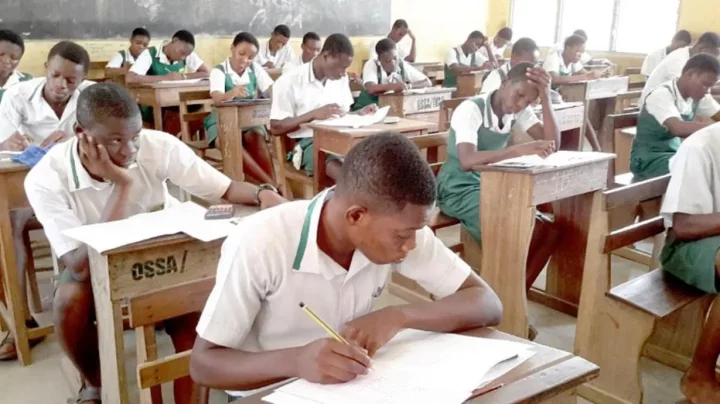
The pronouncement by the Minister of Education, Dr Tunji Alausa, that the conduct of the Senior Secondary School Examinations by the West African Examinations Council, WAEC and the National Examinations Council, NECO, will now be computer-based as from next year, may have to be reviewed, going by opinions by critical stakeholders regarding the readiness of the country for such an exercise.
While the leadership of WAEC and NECO claims their agencies are ready to take on the new challenge, the availability of the necessary facilities in the country could pose a significant hindrance to achieving it.
The Head of National Office, HNO, of WAEC, Dr Amos Dangut, and the Registrar of NECO, Prof. Dantani Wushishi, who spoke during a Zoom meeting organised by the Education Writers Association of Nigeria, EWAN, titled "CBT for SSCE: Is Nigeria ready?", said their agencies had started conducting some aspects of their examinations using CBT, adding that they would only need to put in more efforts.
However, critical stakeholders, such as parents, students, university lecturers and education experts, faulted the claim, saying the level of infrastructure in the country was far below what was needed to realise the government's objective.
Changing SSCE to CBT mode call
In April, while this year's Unified Tertiary Matriculation Examination, UTME, was ongoing, the minister went round to inspect some of the centres where the exam was held.
It was in the course of the inspection that he said starting from November/December, this year, WAEC and NECO would conduct their external examinations using the CBT mode. The exam is not school-based, it is for external candidates.
He added that from May/June 2026, when the exams would be school-based, the examination bodies would conduct them fully in CBT mode.
The pronouncement has since been generating reactions.
History of CBT exam in Nigeria
It was the Joint Admissions and Matriculation Board JAMB that started the conduct of CBT examination in the country in 2013. Though opposition trailed the decision then, it has come to stay. Currently, the Board makes use of 887 centres across the country for its exam, with universities, schools and private interests providing the facilities and been paid commission by the Board for the use of their facilities.
The National Open University of Nigeria, NOUN, has 114 study centres and does not provide a specific number of CBT centres, according to their website nou.edu.ng and Wikipedia.
These study centres offer services, including CBT for examinations, although they may not all have dedicated CBT facilities. The 114 study centres are distributed across the six geopolitical zones of Nigeria.
CBT will save us from logistics issues -WAEC HNO
Still trying to get over the shock it received over the late administration of one of its important papers a few days ago, the HNO of WAEC, Dr Amos Dangut, said adopting CBT would save examination bodies some logistics problems.
The exam body came under fire last week when some candidates stayed up to 12 midnight before writing their English Language paper.
"It will save logistics issues. It will be a matter of touching the keyboard. We started the computer-based test over a year ago. The plus is greater than the minus. For us in WAEC, we are good to go. We have started and we are consolidating," he said.
We can make use of other agencies' facilities - NECO boss
In his opinion, Prof. Dantani Wushishi noted that CBT facilities currently used by the Joint Admissions and Matriculation Board, JAMB, and the National Open University of Nigeria, NOUN, could be used to support the conduct of their examinations.
"Are we ready? you asked. Ready means fully prepared, but in real life, you cannot be fully prepared but you continue to innovate and keep improving on what you are doing. We have introduced a lot of ICT innovations into what we are doing.
The directive is presidential. The minister's pronouncements were anchored on some critical issues. We have 76 subject areas we handle and 120 papers in 26,000 centres / schools.
"Education is on the concurrent list in the constitution and states are to be part of it. How many schools have CBT centres? It will require a lot of funds. JAMB has over 800 CBT centres and National Open University of Nigeria has across the country. Those are useful too. We use CBT in the conduct of November/December examination but is it not school based exam?"
On the level of computer literacy in the country, he added: "When we met with the minister, he agreed that there should be awareness and we are talking with stakeholders for each to know the roles they would play.
''We are already mapping our physical and CBT centres. We only need some modifications. Those doing CBT exams took some years to arrive at where we are starting from. It is about technological adoption.
It will reduce exam malpractice - Education Ministry
The Director of Senior Secondary Education, Federal Ministry of Education, FME, Hajia Binta Abdulkadir, said changing the exam mode to CBT would reduce malpractice in the conduct of the examinations.
"Examinations are fundamental to education globally. They are means of assessment. We will look inward to make use of available facilities. If we don't, we won't start at all. CBT exams record low malpractice than paper exams. There is need to punish exam saboteurs. Dual education system is good. You don't de-emphasise certificate."
Our exam mode is not adaptable to CBT - Rabana
However, an education advocate, Rasheed Rabana, said the mode of examinations in Nigeria was not adaptable to the use of CBT.
"What we have been doing in the past is not really CBT in the real sense of it. WAEC and NECO mode of examination is not adaptable to CBT. Harvard University in the United States is one of the pioneers of computer use and CBT, but they still conduct paper exams.
''It is only multiple choice exam that is adaptable to CBT. We are destroying our exams. Let us just set the issue of infrastructure aside, that is the least of our problem, the mode of our exams is unadaptable to CBT.
It could lead to exclusion of some students - CONUA
On his part, the National President of the Congress of University Academics, CONUA, Dr Niyi Sunmonu, opined: "On the directive to migrate all examinations to Computer-Based Testing, CBT, by next year, I believe the intention is commendable.
''It is aiming to modernise assessment, improve efficiency, and reduce malpractice. However, the feasibility raises a number of serious concerns that must be carefully considered:
"Access and equity for candidates in remote areas: Many candidates from underserved or remote areas may not have regular access to computers and/or stable internet connectivity. More importantly, they may lack the digital literacy required to confidently navigate a CBT interface.
''Rolling out a nationwide policy without addressing these disparities could result in the exclusion or unfair disadvantage of a large segment of the student population.
"Nature and Pattern of Examination: While CBT works well for objective, multiple-choice-type assessments, many disciplines require more complex forms of evaluation, including essays, problem-solving, diagrams, or technical drawings.
''These forms are not easily adapted to standard CBT platforms. A blanket implementation risks oversimplifying assessment and undermining the depth and rigour required in many fields.
"Infrastructure and technical reliability: The current state of digital infrastructure in many schools and centres is not yet robust enough to support large-scale, glitch-free CBT deployment. Issues like power outages, insufficient computer terminals, network (internet) failures, and software glitches could severely disrupt the examination process and compromise its credibility.
"In essence, while transitioning to CBT could be a step in the right direction, it must be done gradually, inclusively, and with a clear-eyed view of the challenges ahead. The focus should be on capacity building, infrastructural development, and piloting CBT across suitable exam types before a full-scale implementation is adopted."
It is not possible now - NAPTAN
Also reviewing the situation, the National President of the National Parent Teacher Association of Nigeria, NAPTAN, Alhaji Haruna Danjuma, opined that with the current level of infrastructure in the country, such a step would not work as effectively as envisaged.
"It is not possible. Will all the schools be fixed with computers? In my state, we have over 500 basic education schools, in my local government, we have over 200 primary schools, then we should install ICT facilities in all the schools.
''What about the electricity to power the facilities assuming we have them in place. How many computer instructors do we have to take care of the children? We are sitting on a time bomb."
Let us not rush into it - ASUU
On his take, the chairman of Lagos Zone of the Academic Staff Union of Universities, ASUU, Prof. Nassir Adesola, said the country should not just jump into adopting any policy without seriously interrogating same for its workability.
"Nothing is wrong with CBT actually but we need to interrogate the motivation for adopting its use. We need to be fully aware of the possible low points and the implication on the sanctity of our examinations.
''The modalities for its use, i.e. multiple choice, written, hybrid, and the opportunity for students to fully express themselves. This is more appreciated when grading is done manually, compared to some keywords driven programmed grading.
"A pilot use to identify challenges and smoothen rough edges would be better before plunging into it. We need to really expand our technology all round, from hardwares to softwares, electricity, logistic matters for remote locations, etc. The human factor too.
"Compared to UTME, the population of students that would be involved would be much larger. Nonetheless, the matter would continue to be a subject of discussion by stakeholders in education, including ASUU, so that government can be well advised on the matter."
Let us use JAMB's UTME as litmus test - NANS
The National Public Relations Officer of the National Association of Nigerian Student, NANS, Comrade Adeyemi Samson Ajasa, called for using JAMB's UTME as a litmus test before jumping into using CBT for other exams.
"Let us use JAMB's UTME as a litmus test. How has it fared? Meanwhile, remember that UTME is a day exam and SSCE runs for a little over a month. Are the facilities in place? Do we have CBT centres across the 774 local governments in the country. Let us assume that we do, remember that most of the LGs are made up of more than one community. Who is going to be responsible for the cost of logistics of candidates who want to write the exam? Is it the already pressed and hapless parents?
"Even if WAEC and NECO are going to make use of the facilities that JAMB is using now and others, they cannot be enough. We have not mentioned the issue of network, power supply, security concerns and others. The government should call a meeting of stakeholders including students, parents, experts etc to discuss the proposal. We need to make haste slowly."
It will negatively affect students' writing skills - Don
A former lecturer at the University of Abuja who now teaches in a university in Rwanda, Dr Isaac Areo, said it would badly affect the writing skills of students.
"At the University of Abuja, I was the Examination Officer for about 10 years. From the experience I have gathered over the years, my main worry is that CBT will negatively affect the writing skills of our students.
''Just relate with some of our students, you will notice that they mostly speak better than they write. I doubt if all schools, whether private or public, can be provided with the facilities that can take all the students writing the exam in their own premises. That would mean some students would be taken to centres probably far away from their schools, then who is going to be responsible for the logistics?
"There is also the issue of computer fright. Not everybody can feel comfortable in front of the computer. Let us take it gradually. Objective questions can be CBT and then others still paper exam. The UTME conducted by JAMB is one thing and the SSCE is a different ball game."
It should not be a policy executed by fiat - Educationists
Making know their feelings about the proposed policy, two educationists, Beatrice Aketuamhen and Ariyo Ismail, said UTME and SSCE were not in the same category.
"UTME is just a day exam and SSCE is about a month or even more than a month. What about security concerns, logistics, and even electricity to power the computers? We all know the cost of energy now in the country. It is a long time thing, not something that can be done by fiat," said Aketuamhen.
Ismail said it was not only Lagos and Abuja that made up Nigeria, adding that many areas lacked basic amenities.
"Lagos and Abuja are not Nigeria as a whole. We like to copy and paste. We tend to pretend. Does every community have the expected facilities for such an exercise? The problem in the education sector is bigger than the issue of CBT," Ismail said.
We're going to kill practicals
Relatedly, a member of the House of Representatives, representing Ikwo/Ezza South federal Cconstituency, Ebonyi State, Chinedu Ogah, appealed to the federal government to discontinue the plan to conduct SSCE in CBT mode.
He said: "The issue about our education is that the system has simply collapsed. We are rushing things by talking about CBT when we have no network in the hinterlands.
"When it came up in the National Assembly, I told them that if we want to do the right thing, let us urge the federal government to deploy ICT to all primary and secondary schools.
"By then, it becomes a course to study in all our schools. They will get acquainted with ICT. Then gradually, they will upgrade. By then, there must have been network services in all the local governments, wards. And that is when you can talk of going into CBT mode.
"Talking about WAEC adopting use of CBT, I am a science student. How will you now combine titration when you are mixing carbon dioxide with CO2 to get a result?
''If you have an equilibrium when you are now doing a thesis and you bring what is called load, fulcrum and force, how do you measure it by bringing the equation?
"In Mathematics, when you have a quadratic equation, quadratic elimination by permutation method, how do you do that with ICT? I said in this way, we talk what cannot work. We are killing our education. We are killing our science.
"Science is purely practical. Our students need to know what practical is all about. And that is the only thing we have in this country. We believe everything is fake and they cannot lead us anywhere", he said.


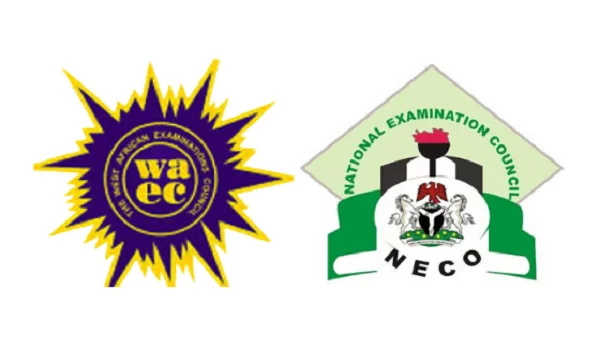
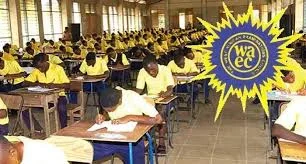
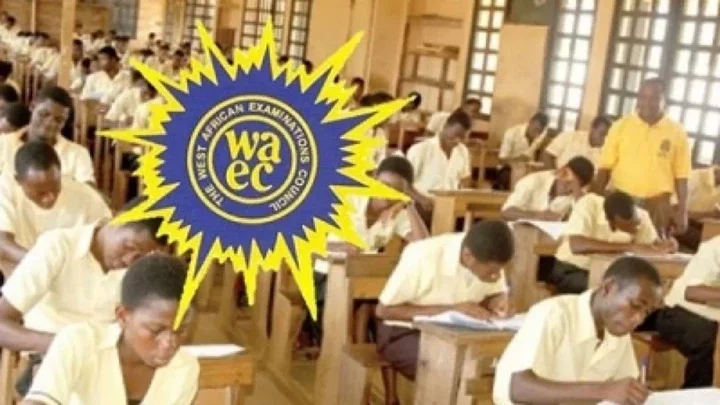

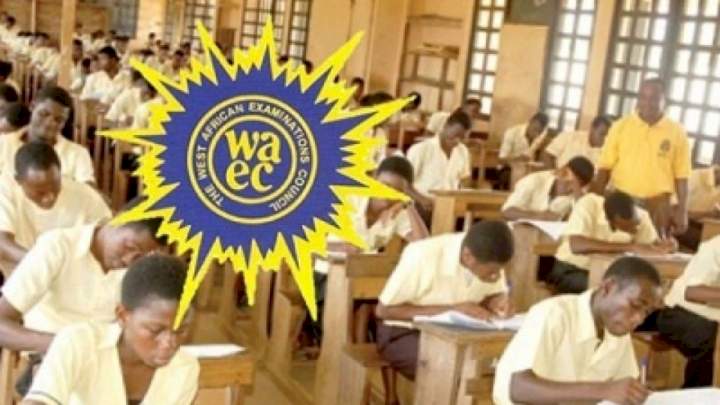









Comments